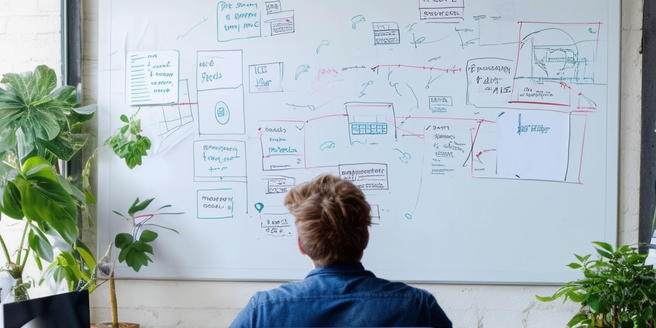
Understanding the Pitfalls of Multitasking
Multitasking, often appreciated in various spheres of life, diffuses your focus across many tasks at once, each vying for a piece of your cognitive capacity. This disrupts the efficient allocation of mental resources, challenging the popular belief in multitasking as an effective method for improved productivity. Numerous studies debunk the myth of multitasking as a productivity tool, showing it can lead to increased errors, higher stress levels, and decreased productivity. Contrary to common belief, multitasking doesn’t aid in completing tasks more efficiently and can often cause cognitive overload due to continuous task switching. Over-reliance on multitasking impedes rather than enhances productivity. Our minds, though capable of impressive feats, work best when focused on a single task. Devoting mental resources to many tasks dilutes the attention we give to each, making them harder to complete effectively. This demanding multitasking can significantly drain cognitive stamina, thus reducing productivity and effectiveness.
The True Power of Focused Productivity
The power of focused productivity utilizes all your cognitive resources towards a single task at a time, fostering deep concentration and understanding of the task at hand. This method not only encourages knowledge acquisition and application, but enhances the quality of work, thus underlining the importance of quality over quantity. It not only elevates efficiency by ensuring each task gets the attention it deserves, but also boosts accuracy, reducing the chances of errors as attention is devoted to one task. Moreover, it inspires creativity by allowing space for innovative thinking to sprout, contributing essential elements such as quality, efficiency, accuracy, innovation, and creativity to any task.
Methods to Train Your Brain for Monotasking
Monotasking, in contrast to multitasking, is a cognitive approach that involves devoting entire attention to one task at a time to enhance focus and productivity, which can be developed over time. Techniques such as time-blocking, which dedicates specific time slots to individual tasks, and prioritizing singular tasks ensure fewer distractions and improved work quality. Mindfulness exercises like meditation can help train the brain to focus on one task, strengthening the ability to monotask. Finally, eliminating digital distractions, such as unnecessary notifications or periods of ‘technological silence’, creates a more focused, productive work environment, promoting the practice of monotasking.
Practical Tips to Avoid Multitasking in Your Daily Life
Start by tidying your work environment, arranging a well-organized routine, and eliminating disturbances to create a workspace conducive for focus on individual tasks. A clean desk and a clear agenda free from unnecessary duties will decrease the need to multitask and enhance concentration. Productivity-boosting tools, either digital or tangible, can support this focus, helping you divide your work, minimize distractions, and improve workflow efficiency.
Mindfulness exercises such as meditative breathing, yoga, or more intensive mindfulness training programs can nurture concentration power as well as enhance present moment awareness and focus, thereby counteracting the negative effects of multitasking.
Set realistic, achievable, and specific daily goals. By taking this step, you can decrease the pressure to multitask and increase productivity levels, promoting a healthier work balance, and accomplishing increased satisfaction with completed projects.
How to Foster a Monotasking Mindset
Adopting a monotasking mindset requires consistent practice and discipline but offers immense benefits, particularly single-tasking over multitasking. This practice over time evolves from mere action to a mindset, bringing focus and energy to your work pattern. It’s crucial to recognize the significant difference a single-focused approach makes in your work’s quality and efficiency, not only streamlining but also improving organization and productivity. Fully immersing in one task instead of hovering over multiple tasks leads to unprecedented productivity and appreciation for your work.
To incorporate the monotasking approach, build a habit of focusing on one task at a time, avoiding distractions until completion. This, even though challenging initially, gets easier with practice, as consistency and repetition foster a monotasking mindset. This mindset eventually becomes a subconscious practice rooted in your work ethics. Your brain will associate productivity with single-tasking, impacting both work-related tasks and personal activities positively. Thus, the journey of monotasking can lead to beneficial changes in both work and personal life.
Maximizing Output: The Impact of Focused Productivity on Your Performance
Focusing entirely on a single task allows for increased productivity by minimizing distractions, leading to significant performance improvements. This undivided attention reduces the incidence of mistakes which can occur when trying to multitask. It enhances work quality as the narrowed focus bolsters attention to detail, enabling you to deliver your best work, often surpassing expectations. This method expedites task completion, leading to heightened efficiency across tasks, while also fostering a productive environment for creative problem-solving. By condensing all your expertise, talents, and efforts into one task, this approach significantly amplifies your output, serving as a crucial tool in elevating your performance.
